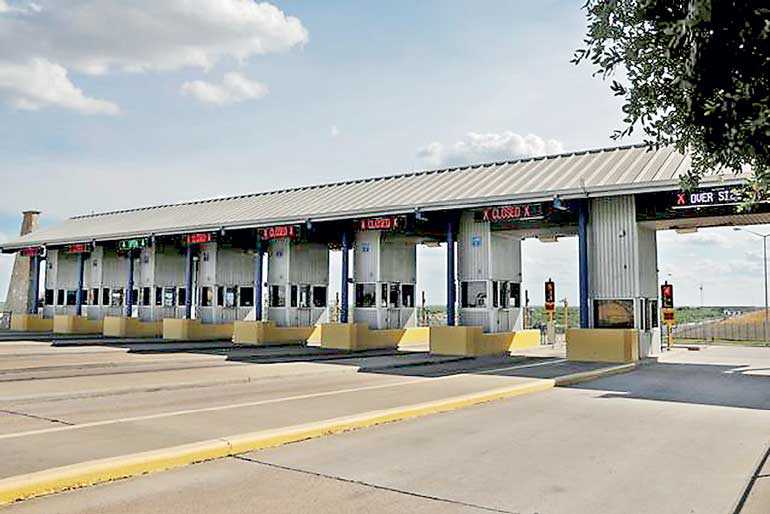Friday Feb 20, 2026
Friday Feb 20, 2026
Tuesday, 4 June 2019 00:00 - - {{hitsCtrl.values.hits}}

MEXICO CITY (Reuters): Fighting to stave off punitive tariffs announced by US President Donald Trump, a senior Mexican delegation was set to begin high level talks on Monday in Washington, where it will be pushed to do more to hold back Central American migrants.
Trump says he will apply tariffs of 5% on all Mexican goods on June 10, and increase the rate in coming months to 25% if Mexico does not substantially halt illegal immigration across the US-Mexican border, which is at a decade high this year.
Global equities tumbled after Trump’s unexpected threat last week against the United States biggest trade partner, as investors feared his aggressive trade diplomacy could tip the United States and other major economies into recession.
With just a week until the first tariffs bite, the delegation led by Foreign Minister Marcelo Ebrard may have a hard time convincing US officials that Mexico is doing enough on immigration to avoid punishment, despite having signalled in recent days it was prepared to further tighten security. The US-Mexican talks began on Monday with a meeting between Mexican Economy Secretary Graciela Marquez and US Commerce Secretary Wilbur Ross. On Wednesday, Ebrard meets US Secretary of State Mike Pompeo.
Trump on Sunday called Mexico an “abuser” of the United States and said he wanted action, not talk. Mexico has signaled it would retaliate to the tariffs, with targets likely to include farm products on Trump supporting states.
In a possible sign of US priorities in the talks, which are due to run through at least Wednesday, Department of Homeland Security (DHS) acting Secretary Kevin McAleenan said on Sunday that Mexico should deploy more personnel to interdict illegal migrants along a 150 mile (241.4 km) stretch of border with Guatemala.
That border is a remote region of mostly jungle and river, and has traditionally been hard to police. The causes of Central American immigration are mainly related to lack of economic opportunity and rampant violence.
McAleenan also said Mexico should bolster its own immigration screenings along its southern border, crack down on networks transporting migrants and enable more migrants to wait in Mexico while they apply for asylum in the United States.